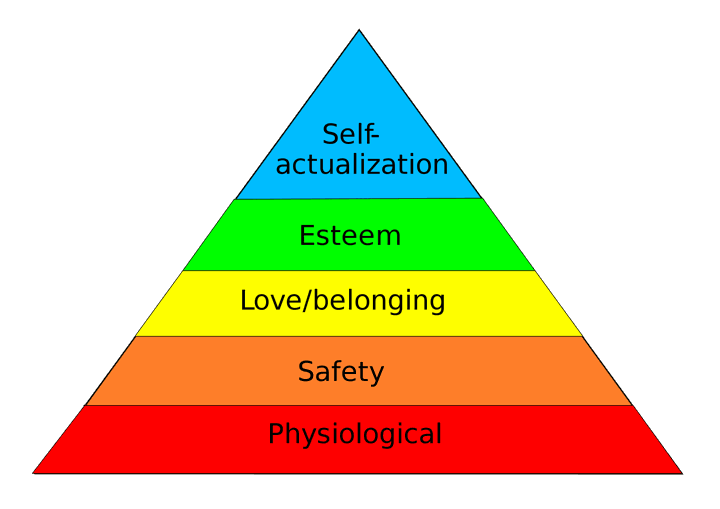High Output Management: the best book on running a team or company

I have a love-hate relationship with books on "management." The content typically falls into one of two buckets:
- They are written by leadership "gurus", who have never managed a team before.
- They are written by an executive, sharing highly-specific stories that may not be relevant to your situation.
I've purchased over fifty books on management and leadership, with many of them falling into one of those two groups. The sad reality is that many management books are not worth your time.
In this post, I'd like to introduce you to High Output Management, which is by far, the best book on leading teams that I've ever read. I might even take this a step further, this is far and away, the best book on management I've ever read.
Others agree with me. Mark Zuckerberg, Brian Chesky, Steve Jobs, and others found it to be instrumental in how they built and led their teams.
In the rest of this post I'd like to explain a bit more about the author, Andy Grove and highlight some key learnings found in the book. Don't treat this summary as a substitute for the book. You need to go buy it. If you'd like to listen to part of the book, here's the audio book:
About the Author, Andy Grove
Before jumping into the content of the book, it's important to build the foundation by giving some context about Andy Grove, the author.

Holocaust Survivor/Immigrant
First up, Andy Grove was born to in a middle-class Jewish family in Hungary and survived the holocaust. He barely escaped to Austria during the Hungarian Revolution and immigrated to the United States, where he earned his degree in chemical engineering. If you want to learn more about his personal story, pick up this book, it's fascinating.
Fast forward a few years....
Intel CEO
Andy Grove became one of the founders of Intel. He was the CEO of the company for about twenty years (1979 to 1997), growing the market cap from $4 billion to almost $200 billion, with 64,000 employees. In other words, this guy was in the big leagues of company building.
As I mentioned earlier in the post, I hate it when people who don't have experience managing offer advice on managing. It's like getting advice on cooking from someone who doesn't cook (i.e. - me). Andy Grove lived in the trenches doing the work that's covered in the book. That matters.
To recap, Andy Grove encountered a lot of adversity and built a monster business during his lifetime. I think we can learn some things from him.
With this out of the way, let's dive into the important learnings found in the book.
Important Concepts from High Output Management
Production Principles
In the first part of High Output Management, Grove spends some time (the first 40 pages) covering basic production concepts which he refers to as "The Breakfast Factory."
You may think it's a bit strange that a management book starts off by covering the principles of production, but it's super relevant for the following reasons:
- This lays the groundwork for what is referred to as "output" in the rest of the book.
- This analogy provides a glimpse into how Grove thinks about management...he's very process-oriented and logical.
- The breakfast factory provides a great analogy that I found extremely helpful when thinking about the production process of "non-tangible" work.
I found this section similar to the concepts covered in another wonderful book on management called "The Goal".
Groves dive into production processes in detail. A couple of my favorite takeaways are below:
The Black Box
Grove refers to the production of a good as a black box. The raw materials (inputs) + labor (whether front-line or manager) = the output. This is true of any production process.
Grove refers to the value of indicators with the black box. In order to understand what's going on, the indicators are like cutting holes in the box, giving better insight into what's going on (as well as what we can expect the output to be).
Improving productivity with leverage
Another helpful takeaway I found is super simple, but an important concept. There are two ways to increase productivity:
- Perform the work activities at a faster rate
- Increasing the leverage of the activities
The notion of leverage is referred to throughout the rest of the book. High leverage activities will generate a high level of output. A low-leverage activity will generate a low level of output.
Grove also refers to the value of work simplification, cutting down on the steps involved in the production process.
Managerial Leverage
With production principles of out the way, Grove jumps into talking about the output of a manager.
Grove defines managerial output as the output of his/her organization + the output of neighboring organizations under his/her influence.
For example, a football coach is not judged activity alone, but based on if the team wins games or not. I found this to be an extremely helpful analogy.
High-leverage activities as a manager can be defined in three ways:
- When many people are affected by one manager.
- When someone's activity over a span of time is effected by a manager's "nudging"
- When a group of people's work is effected by an individual providing a key piece of info.
The foundation of production concepts is super helpful when Grove talks about managerial leverage, as he's applying taking tangible concepts and applying them to intangible activities like management activities.
Effective Meetings
This may be one of my favorite sections, as I generally hate meetings and try to avoid them at all costs (I talk about this more in makers vs. managers). The reality is that meetings is where work can be accomplished if they are run effectively.
Grove talks about two types of meetings:
- Process-Oriented Meetings (1-1s, staff meetings, skip-level meetings, & operation reviews)
- Mission-Oriented Meetings (ad-hoc meetings centered around a specific output...like a decision)
What I love about this section is how Grove talks about how to run these types of meetings effectively. For example, the information he provides about one-on-ones is gold.
Making Decisions
In another chapter, Grove provides a framework for making decisions (and handling disagreements). Once again, the timing of this chapter matters, as the previous chapter he discussed mission-oriented meetings, in which decision-making is one of the key outputs.
For example, when making decisions, one should ask questions like:
- What decision needs to be made?
- When does it have to be made?
- Who will decide?
- Who will need to be consulted prior to making the decision?
In most organizations, decisions are made without an eye towards developing a process. I found this fascinating and am currently researching how to build a decision-making framework that can be distributed inside an organization.
Planning & OKRs
Grove then spends time talking about the role of planning, in which he introduces a framework called objectives and key results (OKRs). OKRs are a bit of a trend these days (and I've been a bit critical of them as I believe software providers have intentionally created complexity in order to push their products).
Additionally, Grove dives into the basic mechanics of planning, which involves three basic components:
- Assess the environmental demand
- Assess the present status (can you keep up with the environment/market demand?)
- What do you need to do to close the gap?
One of the reasons why I love High Output Management is because Grove breaks things down into easily understandable building blocks. There's no b.s. or fancy language you might see in another management book. There's so much substance packed into every single page.
Organizational Structures
Grove also spent a couple chapters discussing organizational structures, including the benefits of hybrid organizations (with matrix structures). One of the biggest challenges is the notion of dual reporting, which is difficult, but oftentimes necessary.
I won't discuss this in a lot of detail, but if you want to learn more, you should buy the book.
Modes of Control
One of my favorite sections is in regards to modes of control. Grove talks about incentives and how these behaviors are exhibited in the workplace. Specifically, they are:
- Free-market forces
- Contractual obligations
- Culture values
Free-market forces are based on price. Contractual obligations are based on a contract (like an employment agreement or service contract). Cultural values are based on shared experiences.
Grove provides a helpful framework for determining when a certain mode of control is most appropriate. Once again, you should probably buy the book.
Motivating People
There's another great chapter in High Output Management on how to inspire peak performance from people on your team. Grove argues that there's two ways to improve output and performance:
- train
- motivate
Grove then proceeds to outline Maslov's hierarchy of needs, tying in how this framework is relevant when trying to elicit peak performance.

Another favorite in this chapter is when Grove explains how some people are motivated by achievement, while others are motivated by competence. In other words, if you're a track runner, do you want to beat everyone else in the field or are you trying to beat your own personal record?
This is a simple analogy, but extremely impactful. This is something that every manager should know for each person on their team.
Task-Relevant Maturity
There's more awesome content covered in the book (like how to do performance appraisals, hiring/firing, etc), but I won't give away any more secrets. I wanted to cover the idea of task-relevant maturity, as it's another fascinating concept that Grove covers.
Put simply, Task-Relevant Maturity is a formula for how involved you should be as a manager. In other words, if someone is new to the company, you need to be hands-on, providing guidance as they get up to speed. Some may call this "micro-managing", but if you were hands-off with a new employee, it may be detrimental as they try to establish work habits.
On the other hand, if you have an associate who's skilled in what they do, you probably should be hands-off, as they know what they are doing.
Here's the takeaway. The style of management you use varies depends. There is no "one-size fits all" approach. It's perfectly fine to be hands-on with one person (in a particular scenario) and be hands off with another.
Wrapping up
What I love about High Output Management is that it takes concepts bouncing around in your mind, and provides a level of structure that makes things "click." It's a mechanical view of how work gets done and how you can be more effective. You can also trust the material covered, as Grove spent decades in the trenches.
This book is a gift to managers and leaders, I strongly recommend that you pick it up ASAP.

